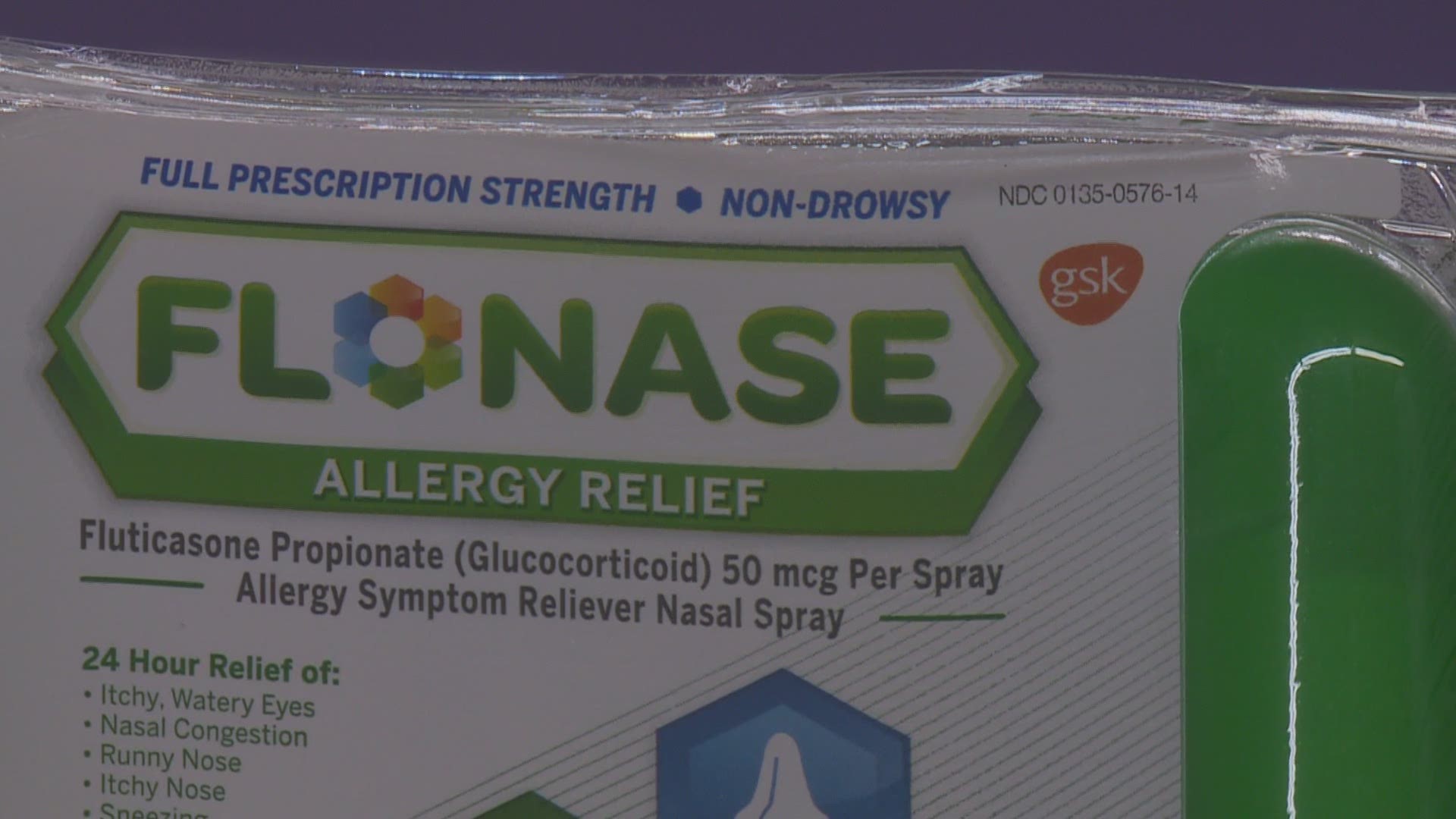NEW ORLEANS — Allergy season is here and so is COVID.
So, what are the difference in the symptoms, and should you use your regular allergy medications?
There's a difference in allergy and coronavirus symptoms.
“Allergies are more associated with itching, so they have like itchy nose, itchy and watery eyes. Allergy people, they do not have fever,” explained Dr. Sanjay Kamboj, an allergy and immunology specialist at LSU Health Sciences Center.
With a viral infection you can get fever.
A year ago, it was thought that allergy medication with steroids could prevent the body from fighting off the coronavirus, but now Dr. Sanjay says people with environmental allergies should use nasal steroids.
He recommends first using nasal saline, then after few minutes, using the steroid spray.
And when it comes to nasal steroid sprays, infectious disease specialist Dr. Brobson Lutz noticed something in his patients who use them daily.
“I've been amazed by the number of my asthma and bad COPD patients who have not had major COVID complications,” said Dr. Brobson Lutz, a New Orleans infectious diseases physician in private practice.
Dr. Lutz has all of his patients, not just those with asthma, on Flonase using one puff, two times a day as a preventive. It is not used after they catch COVID.
“The nasal steroids seem to keep those serious symptoms away, and people are more likely to have asymptomatic or very mildly symptomatic COVID disease if they have been on long-term generic Flonase,” Dr. Lutz said.
It lowers inflammation in the nose and sinuses. It's not FDA approved for this, but allergist Dr. David Schneider, sent us a study on Budesonide, an inhaled, not nasal, steroid that prevents inflammation in the lungs. That study suggests using it early when infected, reduced COVID patients' need for urgent medical care and they got well faster.
Dr. Lutz adds that Flonase will not stop an infection.
“But if you can find a preventive technique, that has a little theory behind it, that is cheap and is safe, I'm all for it,” Dr. Lutz noted.
And since nasal spray is not studied and approved for COVID prevention, always check with your doctor first before using it.

